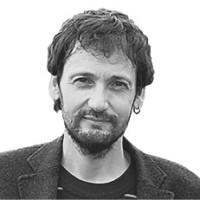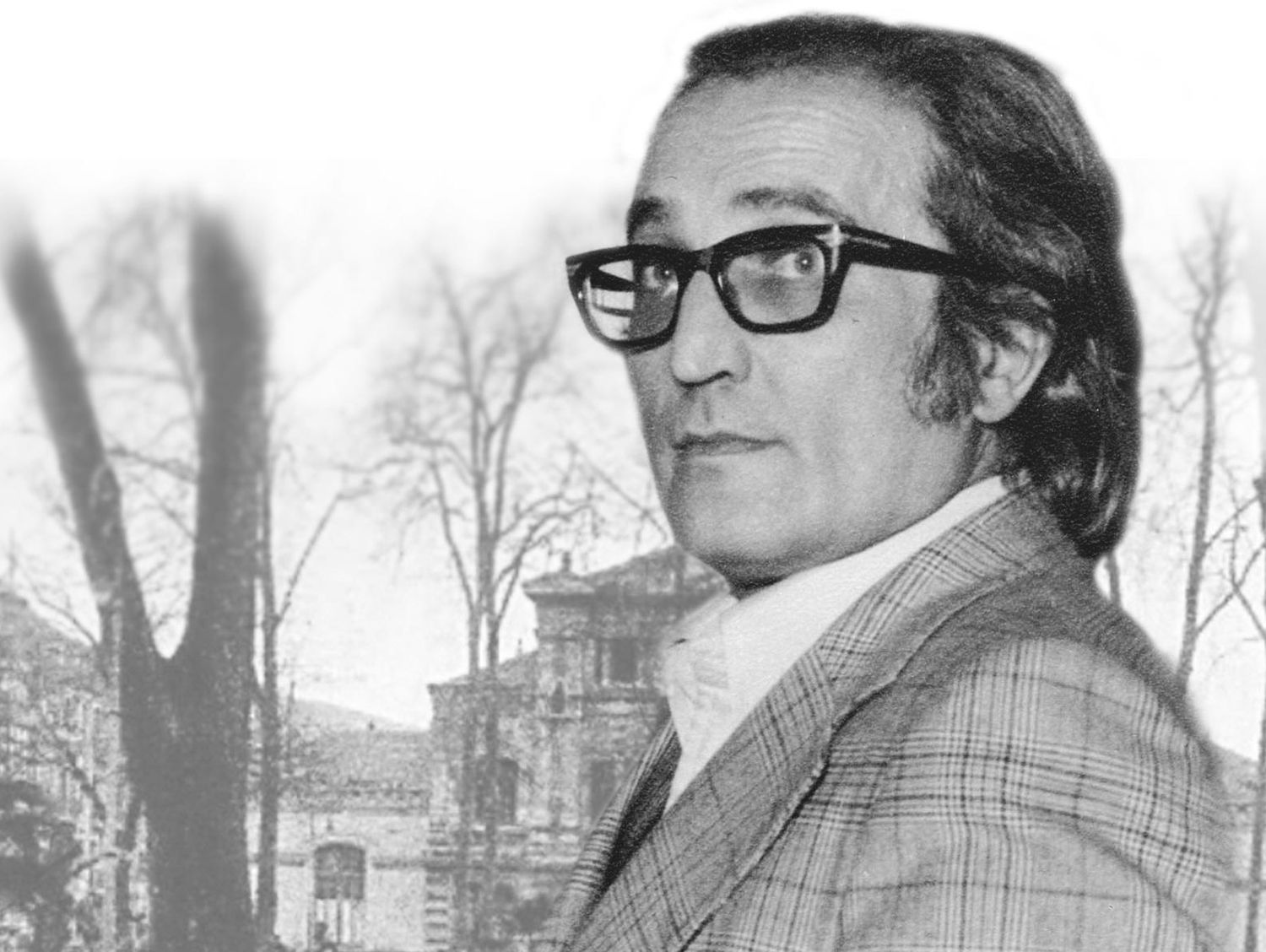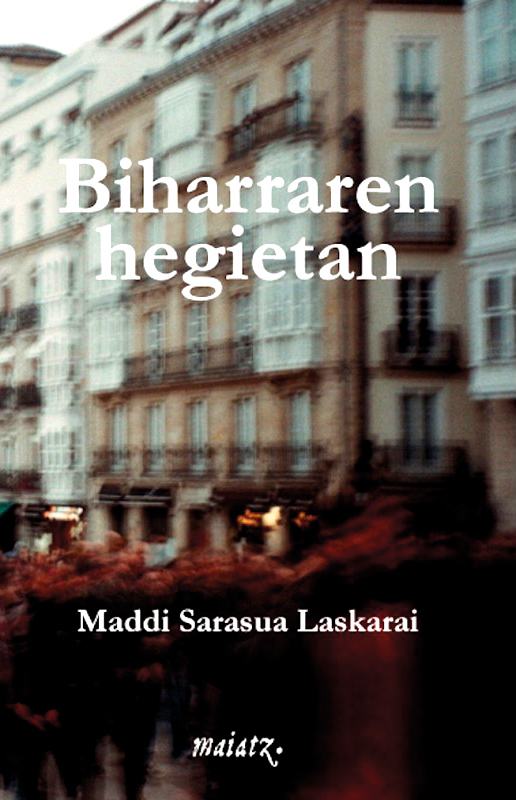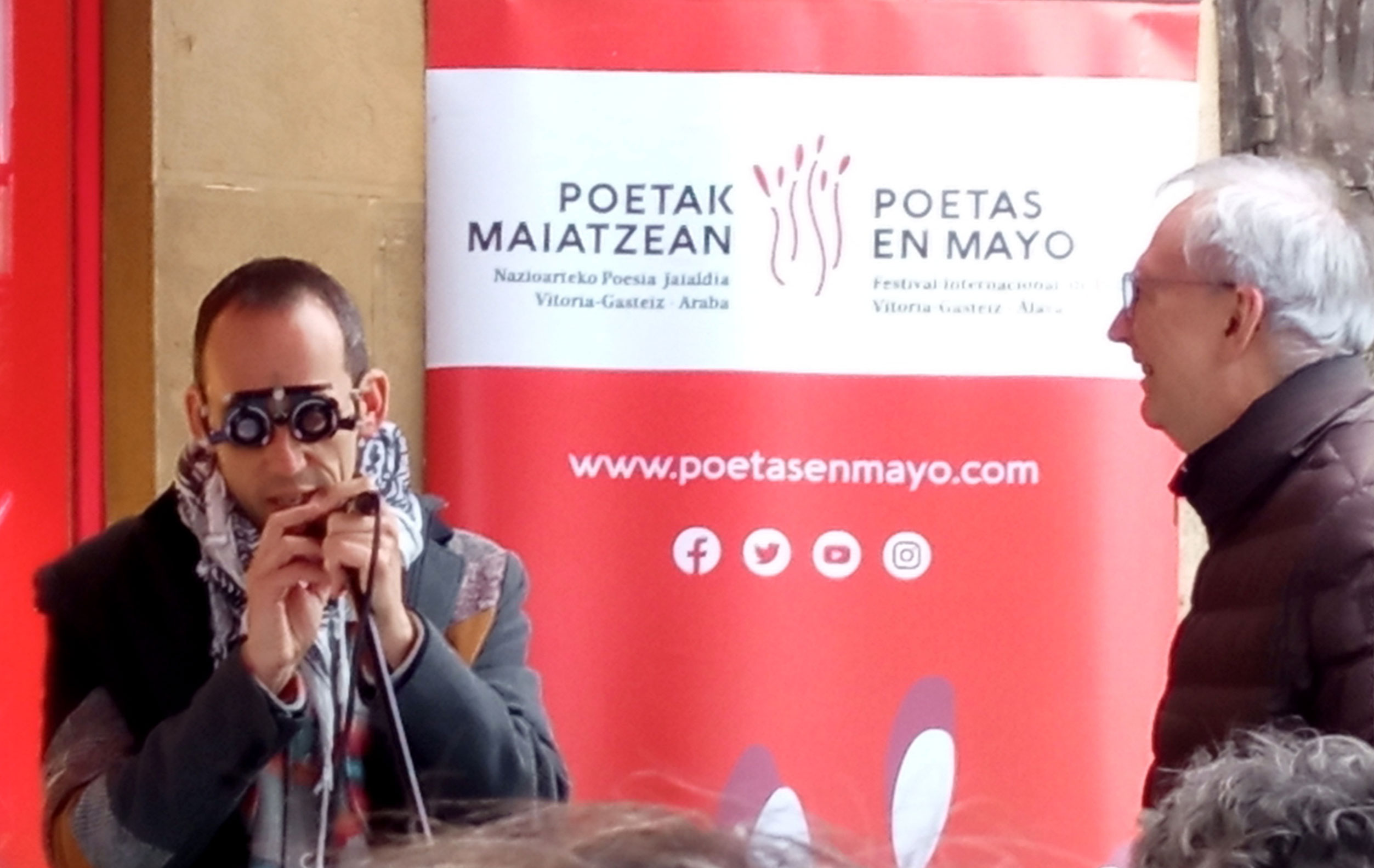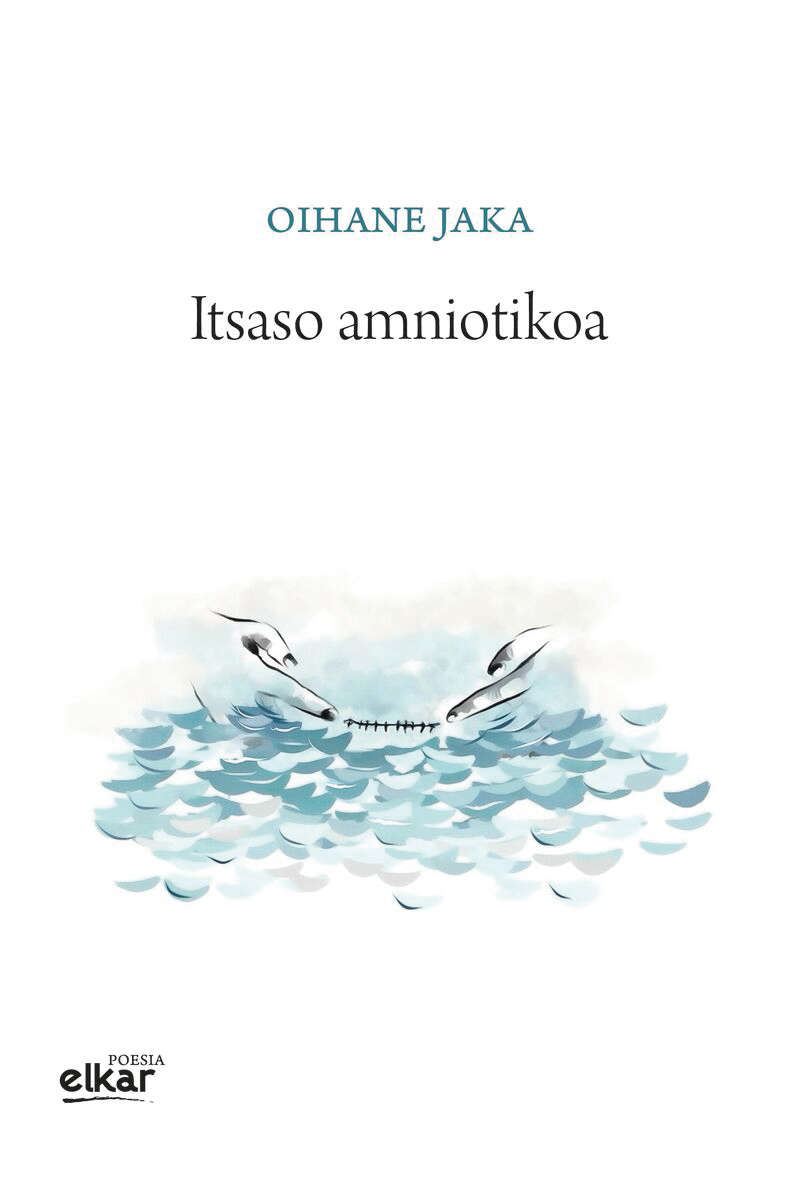Cresal, jinetes and three-dimensional poems
- It's one of those hot summer days, the Concha Beach is full of people, and like every day, the public address lights up every time. After the first three ringtones that are heard from the public address, instead of the traditional voice and the scheduled messages, we hear a voice that is completely unknown to us: The sand is indisputable. Until tomorrow / Europe informs you that your service has ended. Thank you very much. / Can I say hello? Can I dedicate myself? I've lost myself. It was lost in a jellyfish such as fish/ Salid orderly. The voice of the poet María Salgado is heard by the speakers. He made a poetic intervention on the most mythical beach in San Sebastian during the summer of 2016, within the Auditory Observatory project. Copying the syntactic and sound scheme of the public address messages and making minor changes to the text, he spread a very different message to the surprise of the warlords who were on the coast. Poetry on the beach.
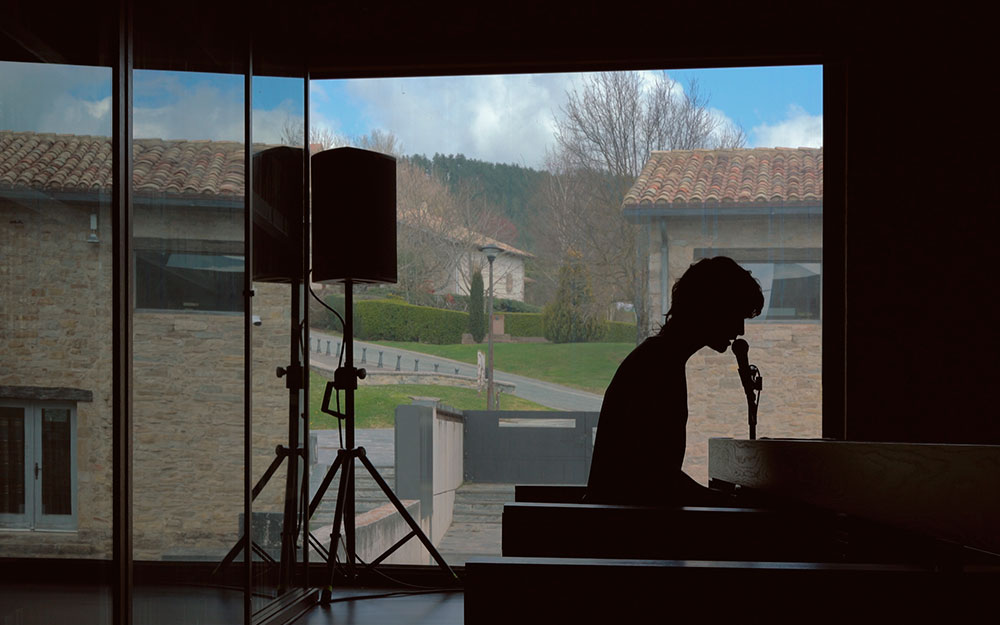
Language is the working framework of poet and researcher María Salgado (Madrid, 1984). It investigates language and moves through language, which is the way it knows how to understand the world and to be in it. He is interested in the languages that are used and read, which in principle are not of anyone, but which in turn we all use. He started writing poetry until he went from writing to saying, from writing the word, to saying the word. And in that evolution, as it could not be otherwise, he started putting the body, and he feels it like a loss of power, because there is no prosthesis between the word and it. And that's where Salgado works comfortably, exploring the forms and compositions of words, assimilating sometimes the phonetic structures of the poems of the past, turning them on sometimes, and timidly losing in the infinite possibilities and combinations that language can have, gliding sensually in the traffic of the word.
Salgado defines himself as a low-tech poet, and currently his work is composed of texts, audio-texts and performances. He has published several poetic books, including Ready (Arrebato, 2012), Made a noise. Phrases for a political film (Contrabando, 2016) or Salitre (The Broken Nail, 2019), its latest poem. He is a member of the Euraca Seminar, a group of reading, writing and collective thought created in Madrid since 2012. In recent years, Salgado’s work has been reflected in the artistic circuit and his performances and readings have been presented in different museums and national and international art centers. He has also presented his musical creations in various editions of the prestigious festival Ladyfest, and since 2012 he has collaborated with the composer Fran MM Cabeza de Vaca. The illusions and utopias that emerged in the heat of the M15, political and social struggles, sex, desire and repression of bodies are some of the issues that it deals with.
Recently, Salgado has been making an artistic stay in Tabakalera (Donostia) in the project called the Last Kingdom Rider (Last Kingdom of Zaldibar), during which we have had the opportunity to enjoy his lectures and performances. The last, the performative reading of the poemario Salitre at the Punto de Vista Festival in Pamplona. The performance took place at the Museo Oteiza de Alzuza and Salgado chose the sculptor’s library for this purpose. Salitre is a beautiful book of memories of friends' dreams, of poems written the way dreams are told, because when it comes to counting dreams, they somehow happen. And as the dreams of others are being read, the reader will also see the traces of their dreams.
.jpg)
Salgado began reading sitting on a corner of the giant black table designed by Sainz de Oiza, sheltered from the large window that gave to a green exterior. The image couldn't be more suggestive. As the program progressed, he was moving from the library, reading by heart the dreams – Salgado does not recite poems, reads them and sometimes even with memory – repeating intonations and rhythms, almost rapping, standing, just in front of the micro, in conversations with recordings in which the speaker repeated every now and then. The different melodies it uses confer structure to the verses and then function as a mantra. All of us in the library were privileged witnesses of an intimate session, a very close and active audience. It was one of those programs that you would never have liked to finish.
Two floors below was the exhibition Statuas of Itziar Okariz, an artist who created a good link with what was happening in the library, as both women have in common lines of work and shared languages: through performance they empower and give body to the task that comes from the oral tradition and are able to find beauty in the complexities that the language spoken can have. Likewise, Okariz has worked for a long time in the Diary of Dreams, recording his dreams and registering himself as a poetic visual, a work he has been developing for years. In the same place, the gesture of Salgado embodying the dreams of his relatives was appropriate.
Undoubtedly, the Last Kingdom Rider is Salgado’s largest job today. This is a huge piece of work that has been developing since 2017 in collaboration with Fran MM Cabeza de Vaca and that presents in format as audiotext, not performance. It is a work that is being composed in three parts and which, for the time being, have publicly presented the third and second part, the Last Kingdom Rider. Χ 2 We saw it last January in Tabakalera. It is a complex work in which gesture, graphics and sound are perfectly orchestrated at a very sharp pace. They create a self-imaginary that doesn't have similarities, that's as accurate, straightforward and as beautiful as synchronized, fast and clear. Through the reading of texts, the sound and the punching messages of the synchronized video that are projected, the project revolves around the norm (obedience, dissent, stages of education) and desire (night of constant prolongation, bodies, repression). It can be said that this is a three-dimensional poem that can be as smooth as it is frantic. Salgado and Cabeza de Vaca create a special chemistry when they are together, their fusion is total, the messages they broadcast are strong and their staging is very careful.
Istorioetan murgildu eta munduak eraikitzea gustuko du Iosune de Goñi García argazkilari, idazle eta itzultzaileak (Burlata, Nafarroa, 1993). Zaurietatik, gorputzetik eta minetik sortzen du askotan. Desgaitua eta gaixo kronikoa da, eta artea erabiltzen du... [+]
Entrepreneurship is fashionable. The concept has gained strength and has spread far beyond economic vocabulary. Just do it: do it no more. But let us not forget: the slogan comes from the propaganda world. Is the disguise of the word being active buyers? Today's entrepreneurs are... [+]
Spring is usually a promise of a cold winter nose that can come after the landing, and has been annotated several times for sleep. Promise, however, is never a safe spring in a ruined terrain. Not at least if we are talking about change or, in particular, revolution. Maddi... [+]
We opened the poems book by Oihana Jaka and found two deals. One father and another son. It is worth noting for its direct relationship with the poems we will find. The book is structured in three parts:
Hamaika urte, Hamaika hilabete eta Hamaika egun. Number eleven is also... [+]
Yolanda Castaño has been interviewed since she received the Spanish National Poetry Prize. The head of a row from one of them caught my attention because he said the second hardest thing he's ever done is win the prize. And I immediately began to look for what was the hardest... [+]
A few years ago, I wrote a little book about Tene Mujika, which is called Udazken Argitan. When I started doing that biographical essay, I met our protagonist today, Mr. Watson Kirkconnell. In 1928, Kirkconnell published a nice book of European Elect anthology, which included... [+]
I do not remember who I heard that at the end of the month you can only write poetry, if poetry is not your way to the end of the month. Poetry, fortunately or unfortunately, has always been on the periphery of the literary system and the cultural industry. In any case, poets... [+]












